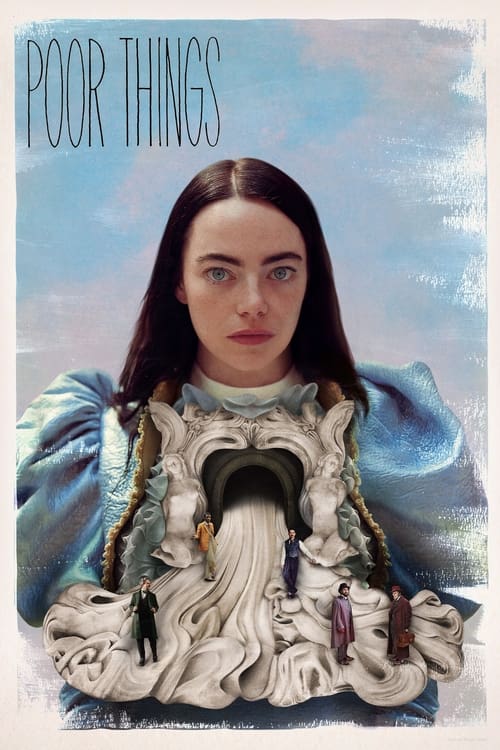Poor Things

Plot
In the late 19th century, Poor Things is a work of gothic fiction and feminist commentary, exploring themes of identity, morality, and inequality. The story revolves around Bella Baxter, a young woman who meets a gruesome demise, only to be revived by the unorthodox scientist Godwin Baxter. Godwin, a man of science and intellectual curiosity, has made it his mission to defy death and explore the frontiers of human existence. His methods are unconventional, and his obsession with the dead has often made him a subject of ridicule among his peers. Despite this, he remains steadfast in his pursuit of understanding life and death. His revival of Bella sets in motion a chain of events that will challenge the very fabric of society. Godwin's revivification process, though unorthodox, is meant to break free from the constraints of a society that views women as mere objects. Through his art, Godwin seeks to create a being equal in intellect, will, and determination to her male counterparts. Bella, or Pug, as she is affectionately known, quickly grows into her newfound existence, showcasing a spirit that belies her humble origins. As Pug navigates her newfound existence, she is introduced to Archibald McCandless, a young and ambitious lawyer who becomes enamored with her. Archibald is smart and charismatic but also wealthy and entitled, which complicates their blossoming relationship. Despite their differences, the two embark on a whirlwind adventure, traveling across continents, and gathering experiences that shape their worldview. Pug's interaction with Archibald serves as a catalyst for her growth, as she delves deeper into the world of men and confronts the social conventions that have hitherto governed her existence. Her unwavering determination to stand for equality and liberation sets her at odds with the patriarchal society that values men above women. As Pug and Archibald traverse the world, they are witness to various social injustices, which only serve to fuel Pug's resolve. They are introduced to a host of characters, each with their own stories and struggles, whom they assist in their fight for equality. This burgeoning awareness of their surroundings inspires Archibald to question his own privilege, and Pug's unwavering conviction has a profound impact on his perception of the world. However, Pug's mission to challenge societal norms and to reform the existing hierarchy is fraught with danger. Her existence as a woman, brought back to life through unorthodox means, remains a subject of debate among scientists, society, and even Archibald himself. As suspicion and paranoia build, Pug and Archibald must navigate treacherous landscapes to safeguard their love, as well as their bold experiment in breaking the rules of a society bent on maintaining its own supremacy. Spanning multiple continents and defying conventions, Poor Things explores themes of reformation, feminism, and existential identity. Through its gripping narrative, the novel delves into the very notion of what it means to be human, while scrutinizing societal constraints that perpetuate oppression and inequality. In its exploration of love, loss, and the struggles for equality, Poor Things issues a powerful commentary on our present world. This meticulously crafted narrative speaks eloquently to readers, daring them to rethink the norms and values that dictate our understanding of human existence and womanhood. In doing so, the novel honors the battle of its protagonist – a resolute being who confronts societal expectations and refuses to be held captive by the norms that underpinned a bygone era.
Reviews
Recommendations




